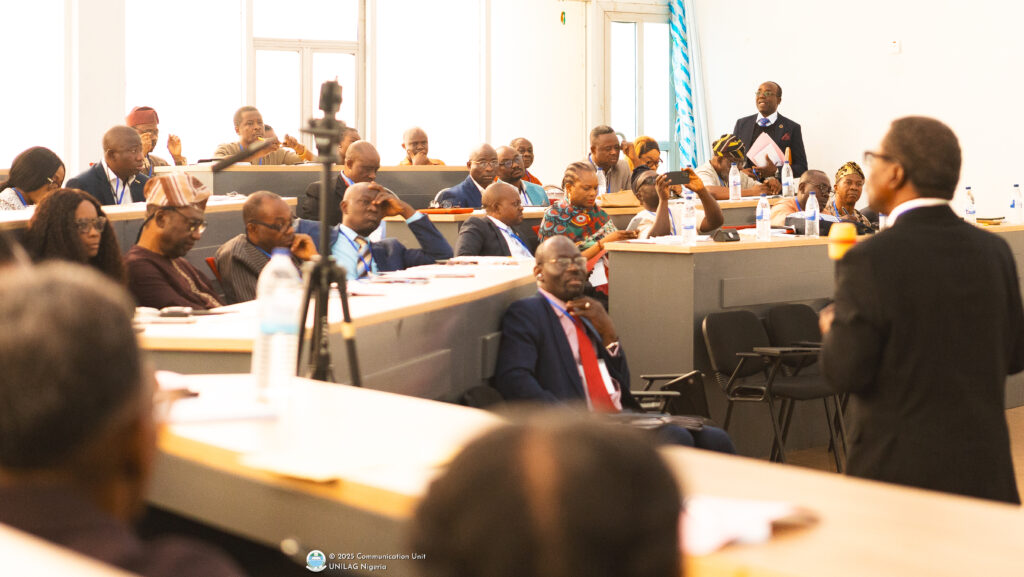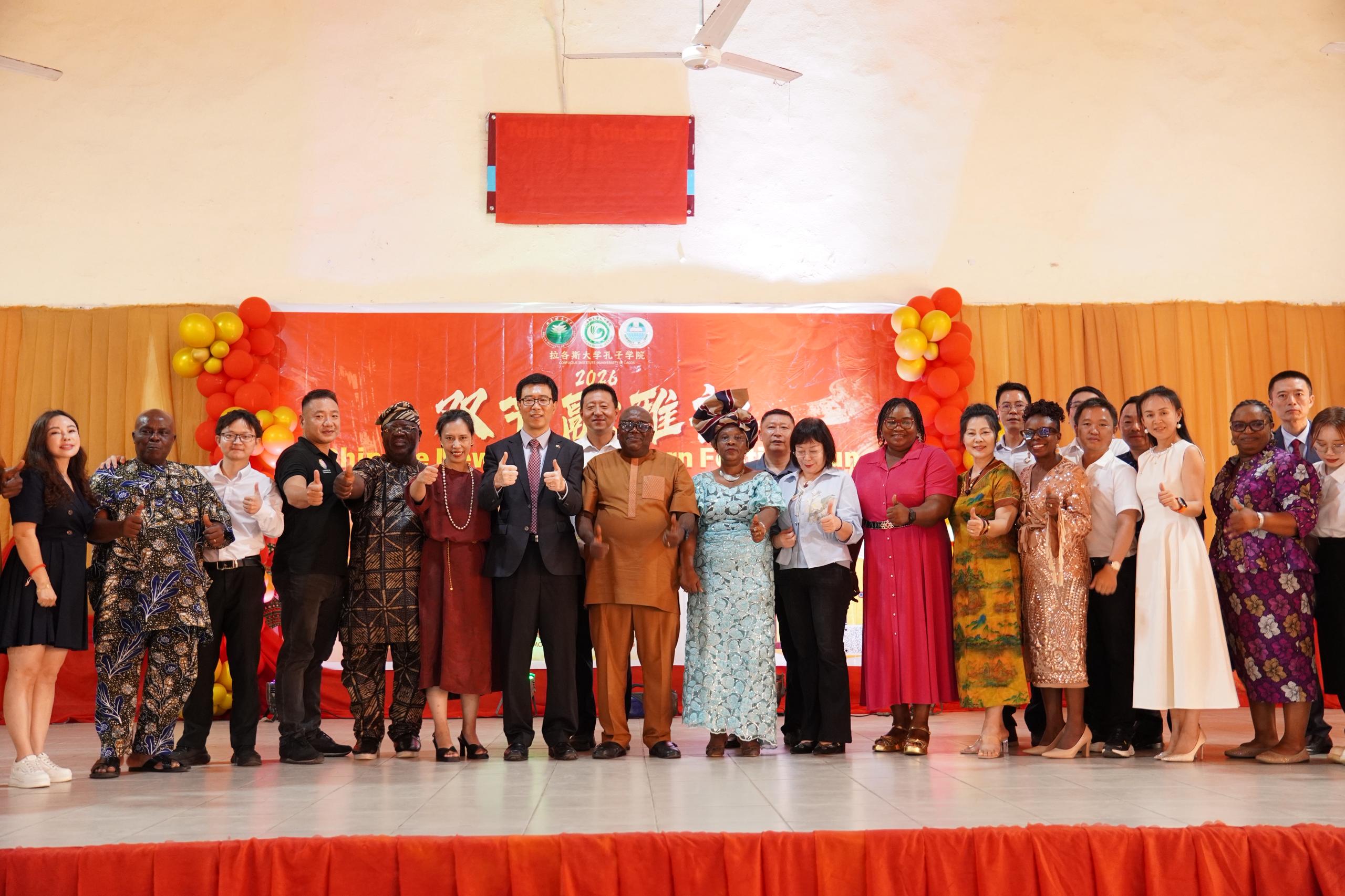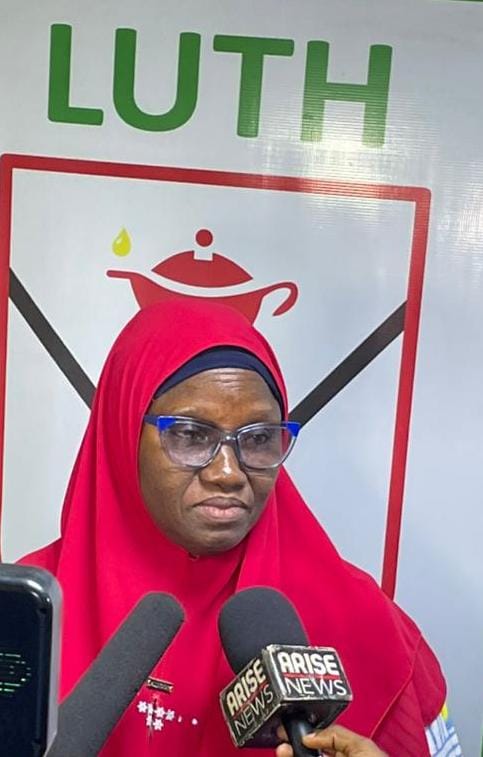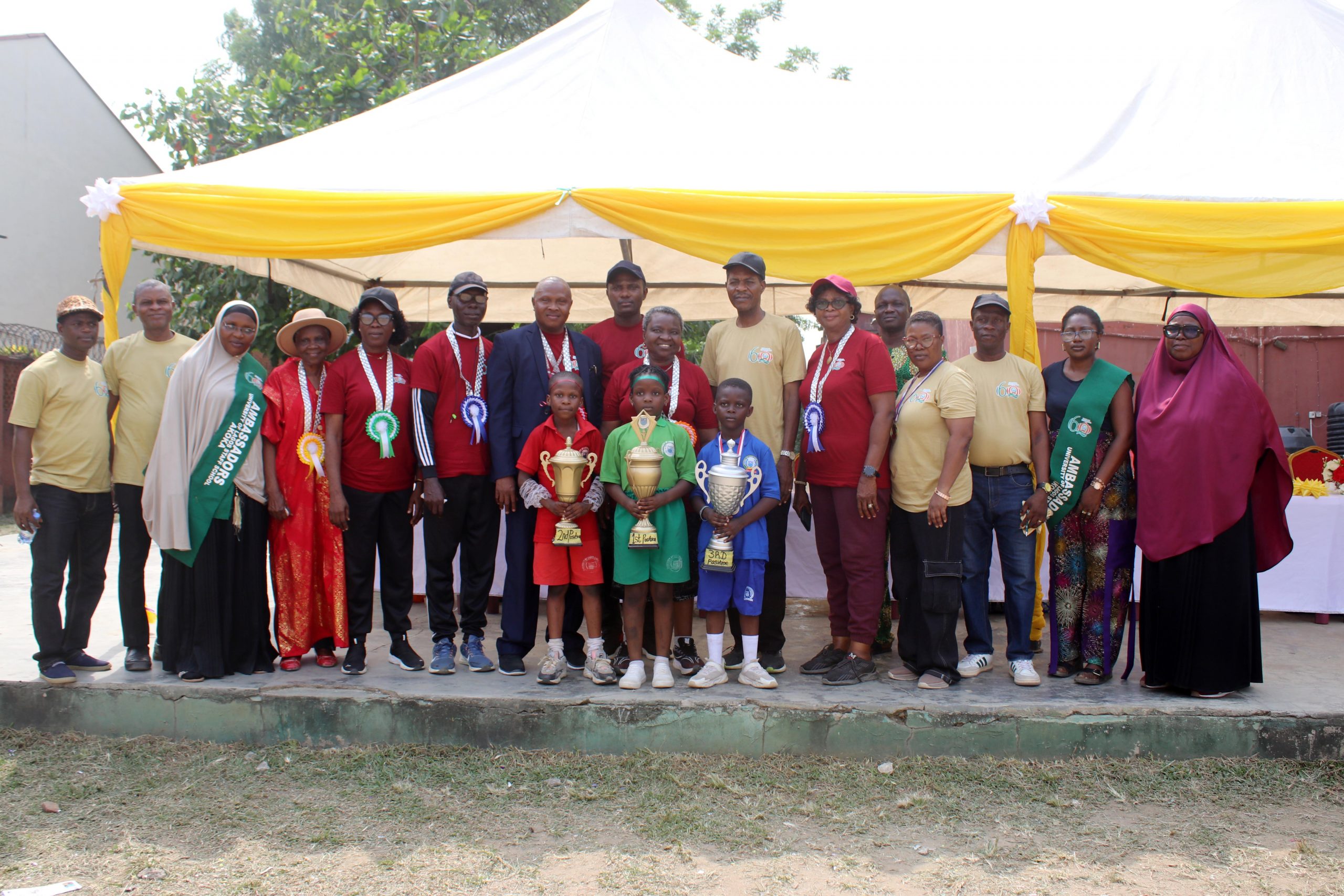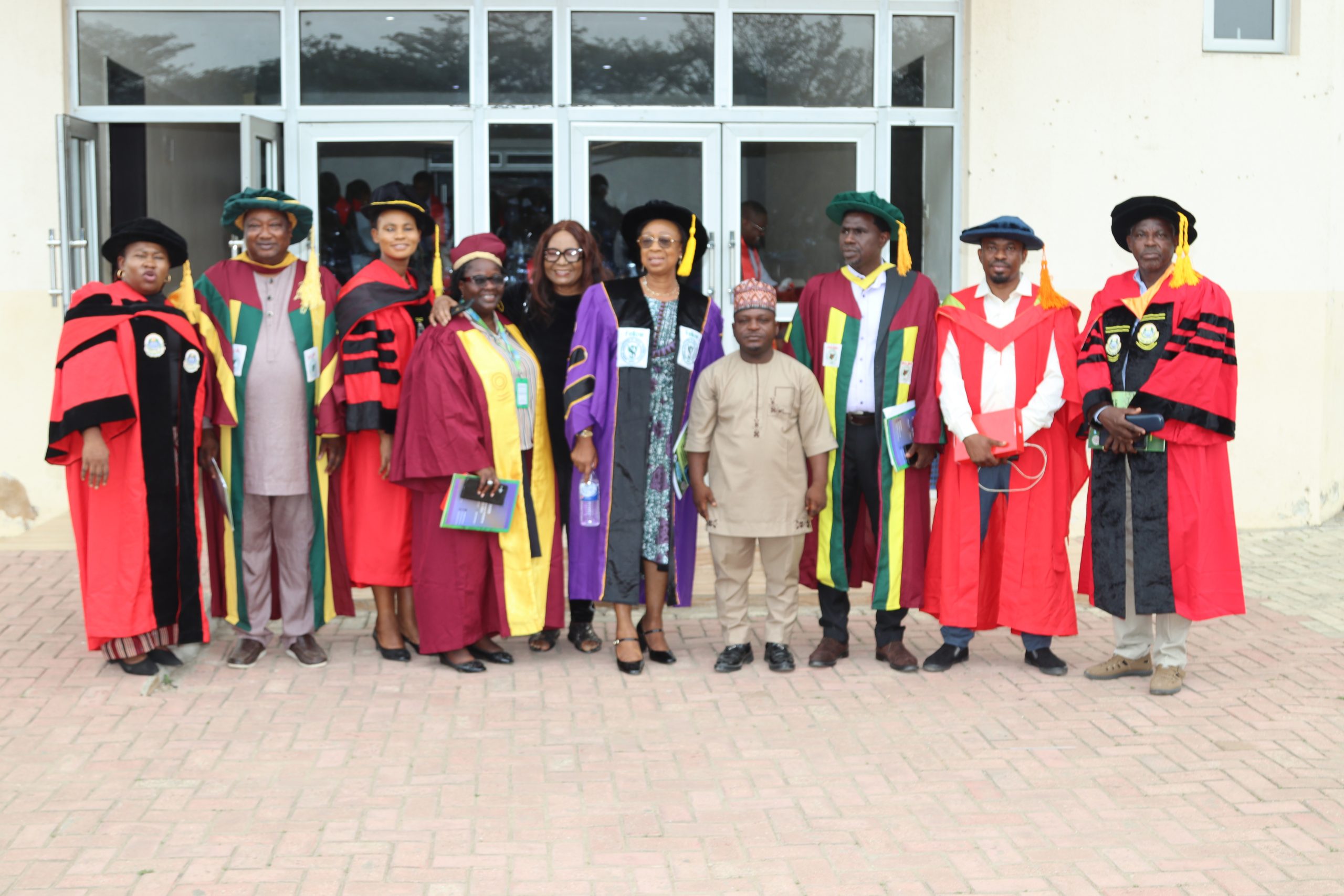The University of Lagos Business School (ULBS) has kicked off preparations for the 2025/2026 academic session with a high-impact hybrid workshop for its facilitators on Tuesday, September 16, 2025, at the Human Resource Development Centre (HRDC) Conference Room, UNILAG. With about one hundred and twenty (120) participants in attendance – spanning academia and industry – the event underscored the school’s commitment to excellence, innovation, and transformative learning.
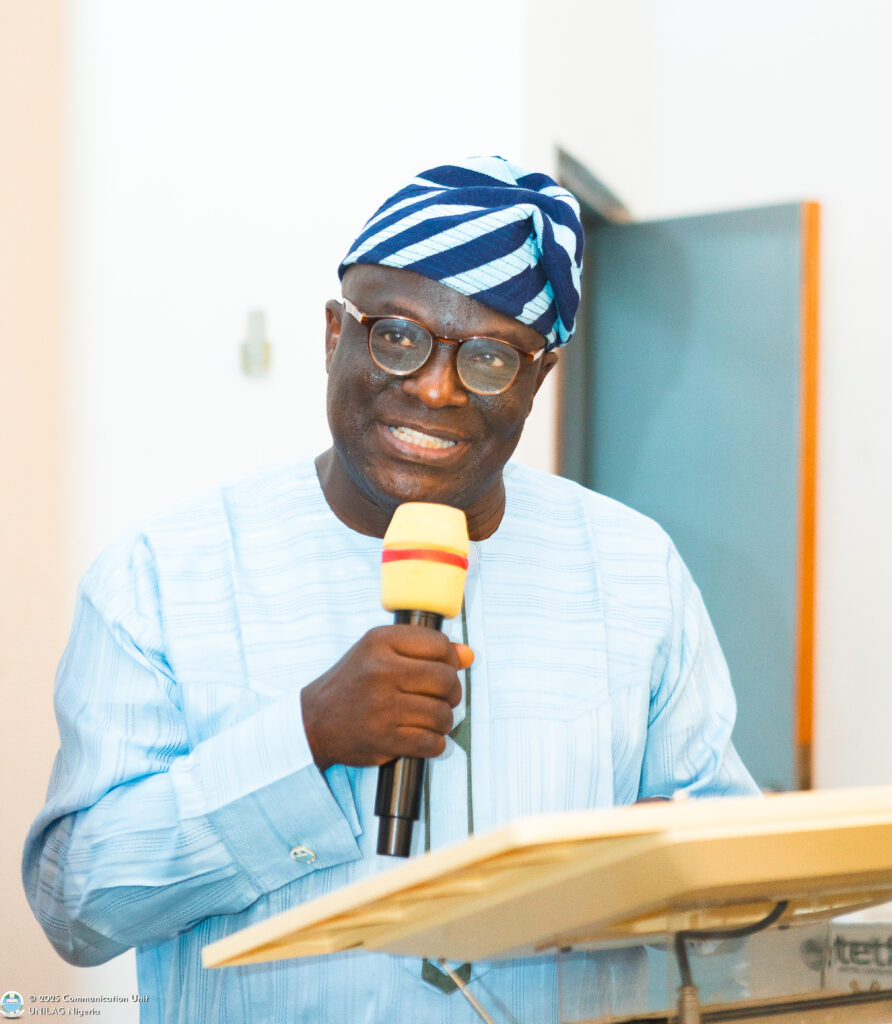
Setting the Tone for Excellence
The workshop opened with welcome remarks from the Executive Director of ULBS, Prof. Mike Adebamowo and the Vice-Chancellor, Prof. Folasade Ogunsola, OON, FAS, represented by Deputy Vice-Chancellor (Management Services), Prof. ‘Muyiwa Falaiye, who applauded ULBS for its “its commitment to punctuality”, and urged participants to take responsibility for their actions and tasks.
A highlight of his address was the reference to the Cobra Effect – a cautionary tale about unintended consequences when incentives are misaligned. He urged participants to be mindful of how well-meaning actions can produce counterproductive outcomes.
Case Study Methodology: A Hands-On Approach
Director of the ULBS Doctor of Business Administration (DBA) programme, Dr. Simeon Ifere, led a deep dive into the Case Study Methodology – a participant-centred learning approach which simulates managerial work experience or business situations as closely as possible.
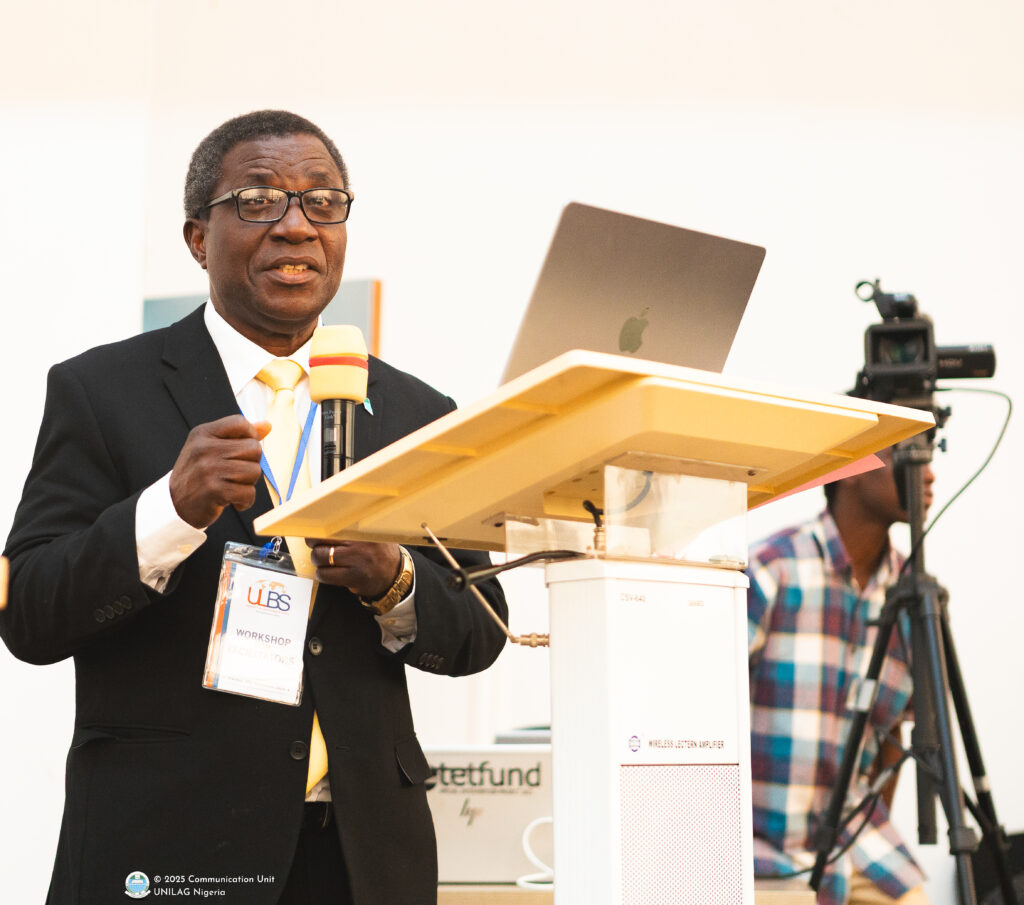
He highlighted important factors to note about the methodology. These include:
- its demanding nature,
- its emphasis on learning not teaching,
- the fact that there is no right or wrong answers, and
- its basis on asking the right questions to drive conversations in class, to mention a few.
He further outlined the teaching plan, and discussed response management as well as psychological biases to avoid such as groupthink, over-reliance on readily available information, overconfidence/egocentrism and confirmation biases.
The session culminated in an interactive case discussion, allowing facilitators to experience the methodology firsthand.
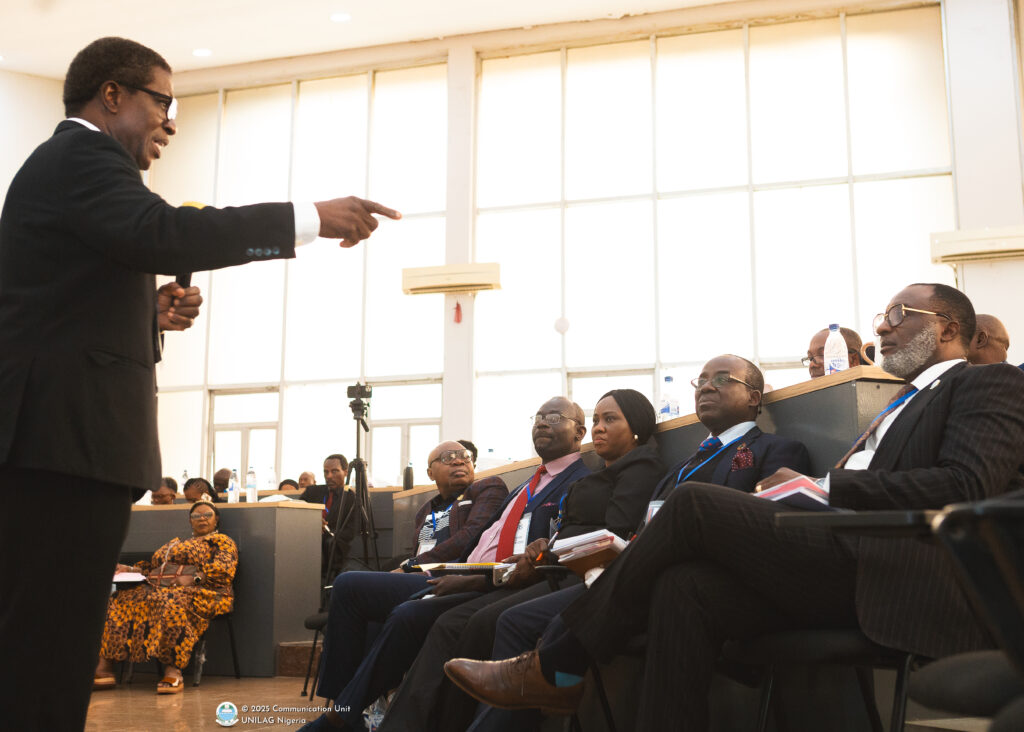
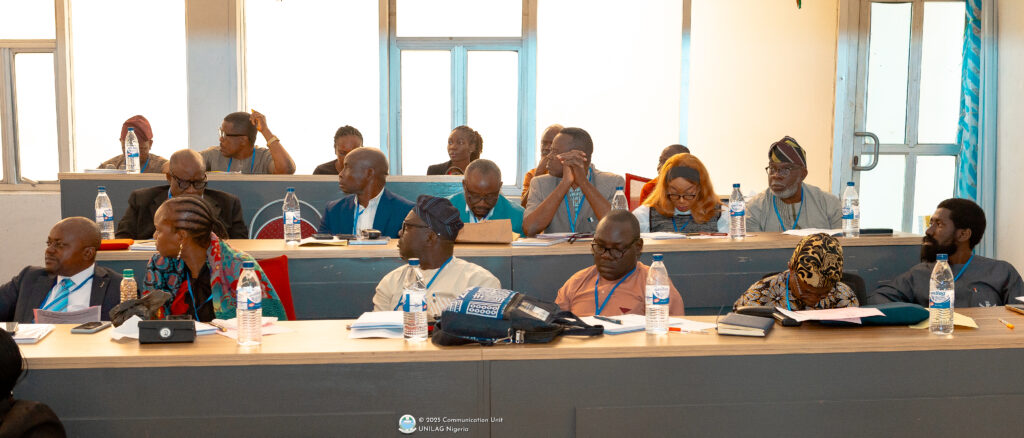
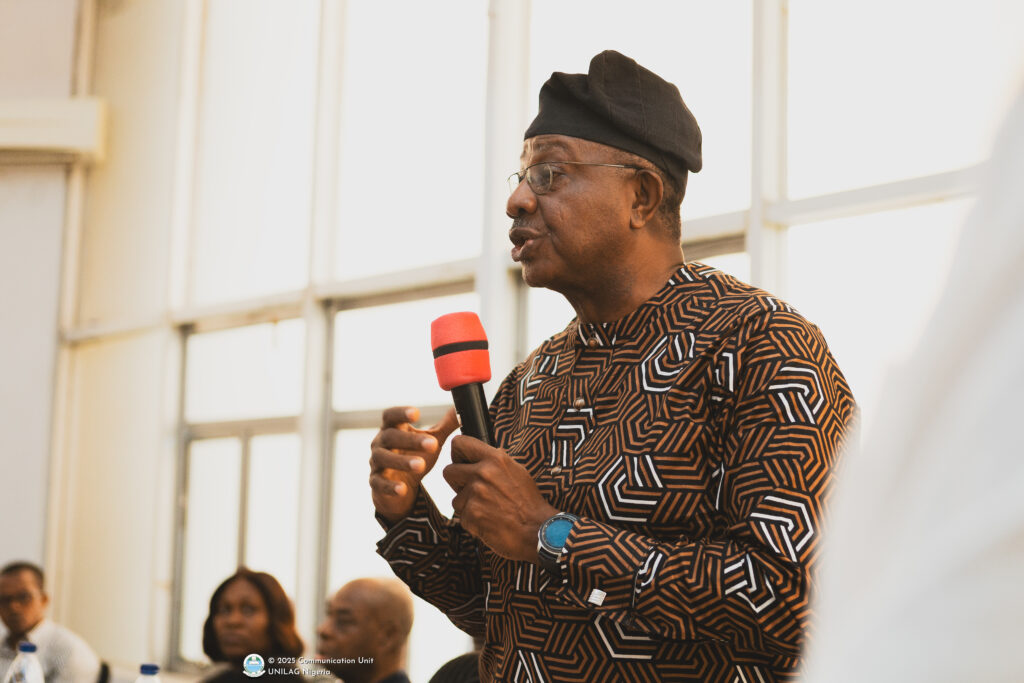
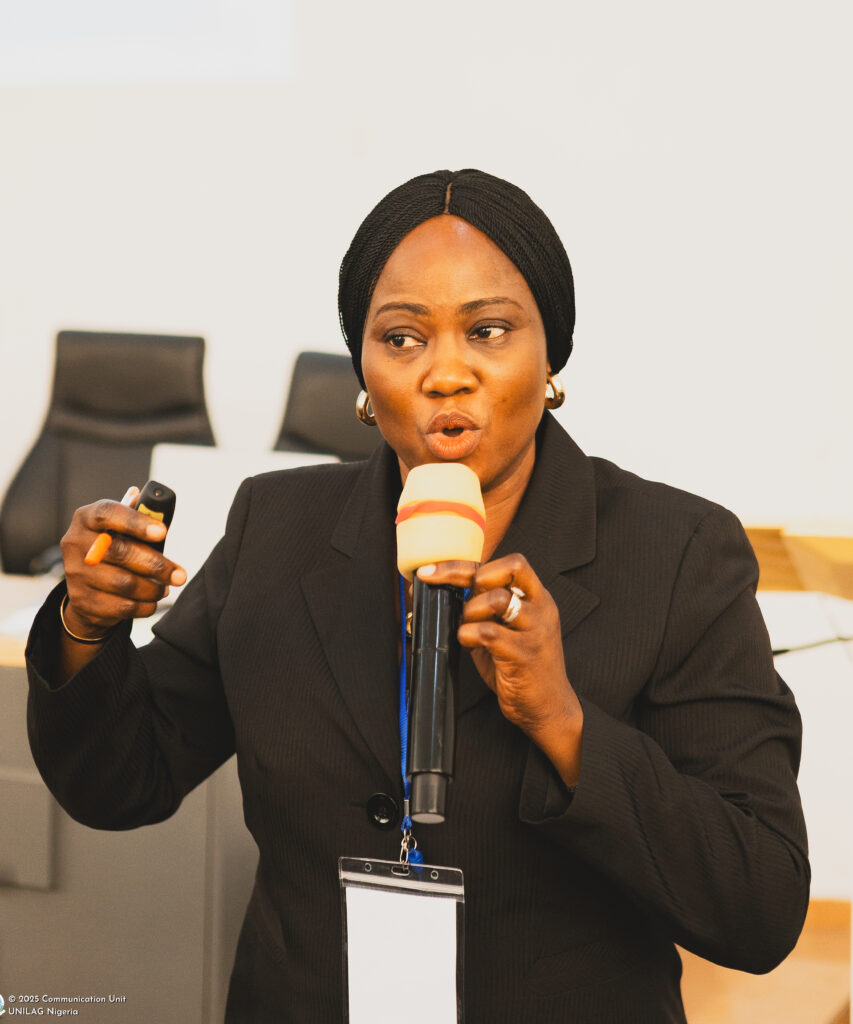
Common Facilitation Errors: What to Avoid
Prof. Folake Olowokudejo, the Executive Master of Business Administration (EMBA) Programme Coordinator, took to the podium to discuss Common Facilitation Errors: Understanding and Avoiding Pitfalls.
She categorized the errors into three:
- Teaching Errors include over talking, lack of clear learning objectives, failure to connect, poor time management, ignoring local content, among others.
- Engagement Errors include poor questioning techniques, ignoring group dynamics (dominant vs silent participants) and failure to create an interactive/active learning environment.
- Professionalism Errors include poor/inadequate preparation, lack of constructive feedback, disrespecting student contribution, showing bias or favoritism, resistance to innovation/change, poor class control, poor handling of cultural /inclusion bias, lateness to class/overshooting allocated time, absence from class, non-compliance with the school dress code and making/receiving calls in class.
She emphasized the importance of creating an inclusive, interactive learning environment; and encouraged facilitators to seek feedback and continuously refine their teaching styles.
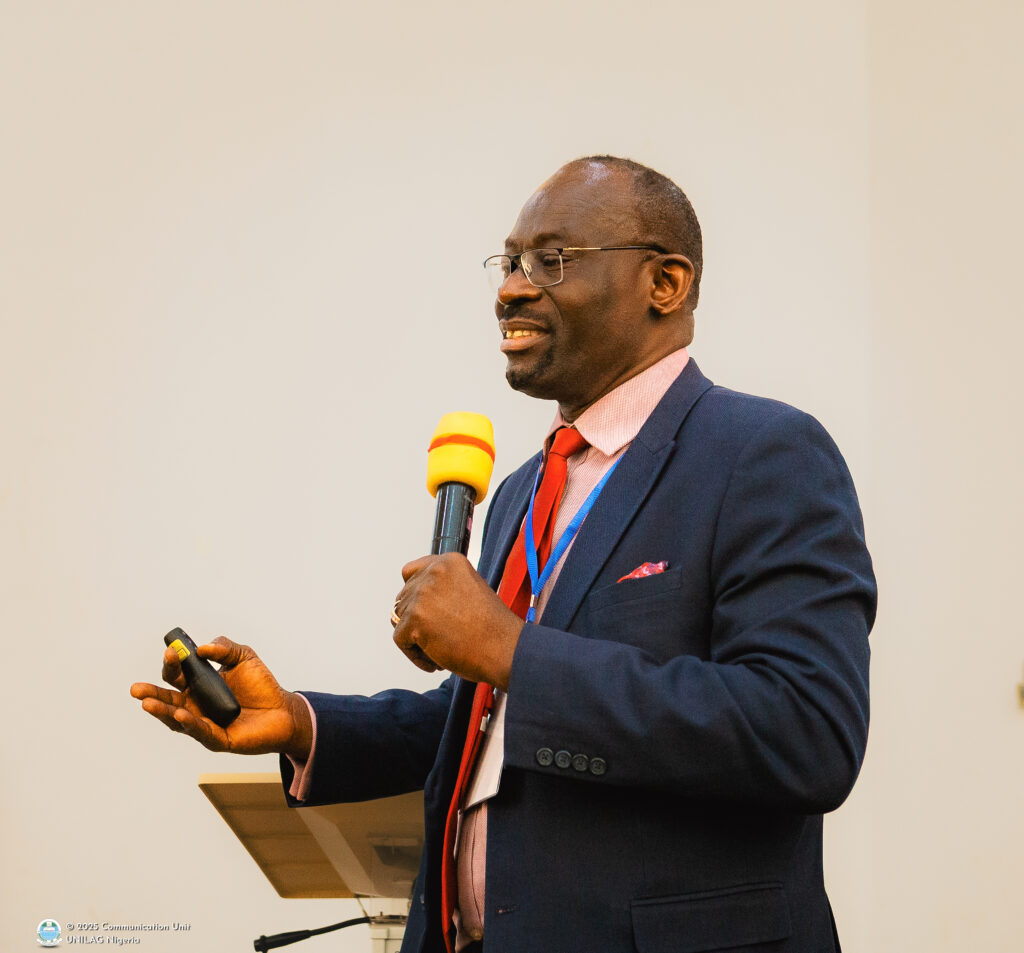
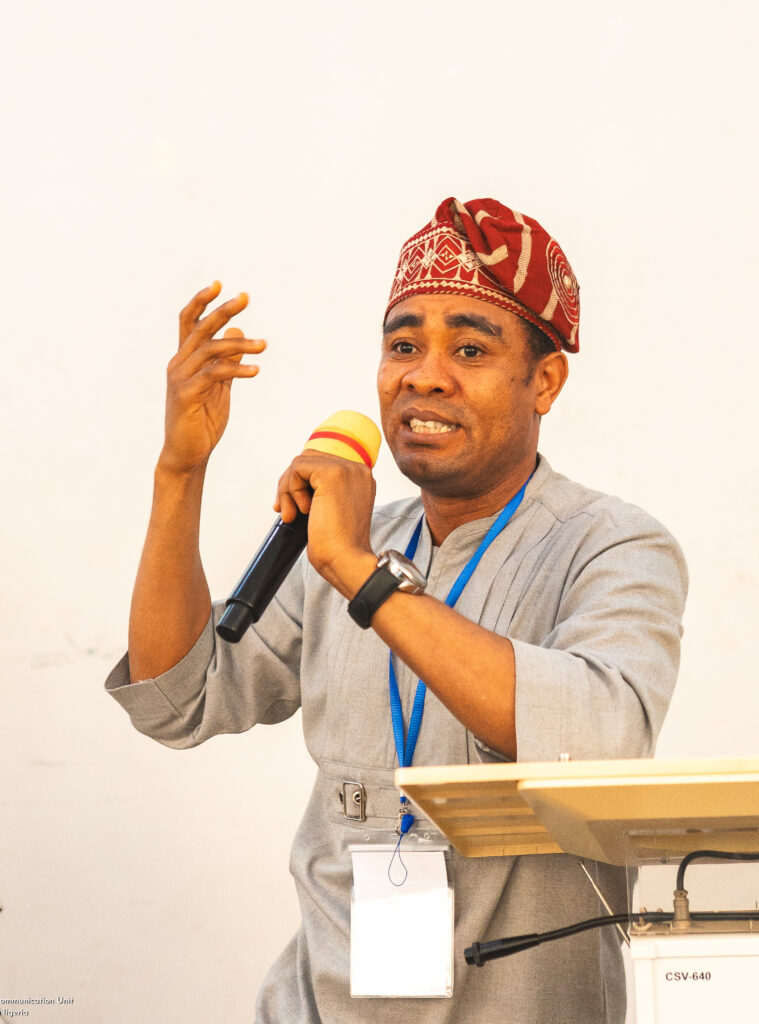
Upholding Professional Standards
Prof. Mike Adebamowo outlined the ULBS Code of Conduct. From equal opportunity and digital etiquette to timely grading of results and dress code compliance, he emphasized the importance of maintaining high standards in all aspects of facilitation.
Embracing Technology and AI in the Classroom
Acting Director of Nithub, UNILAG, Dr. Victor Odumuyiwa, delivered a forward-thinking presentation on the Learning Management System (LMS) and the use of Artificial Intelligence (AI). He advocated for the responsible use of AI tools in classrooms, stressing the importance of critical thinking and digital dexterity. Facilitators were guided through LMS functionalities, and were encouraged to empower students to engage with AI critically and creatively.
His session bridged the gap between traditional pedagogy and modern technology, equipping facilitators for the future of learning.
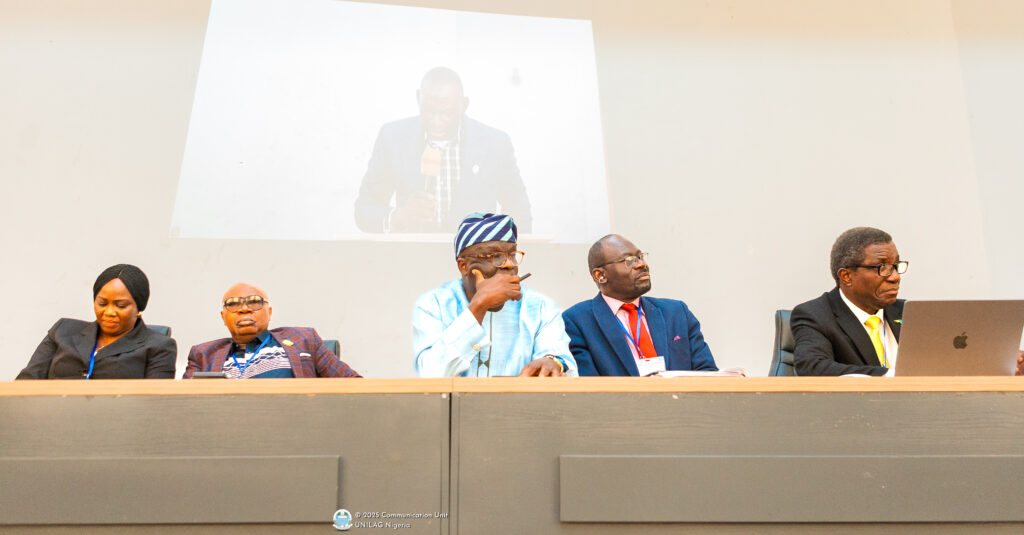
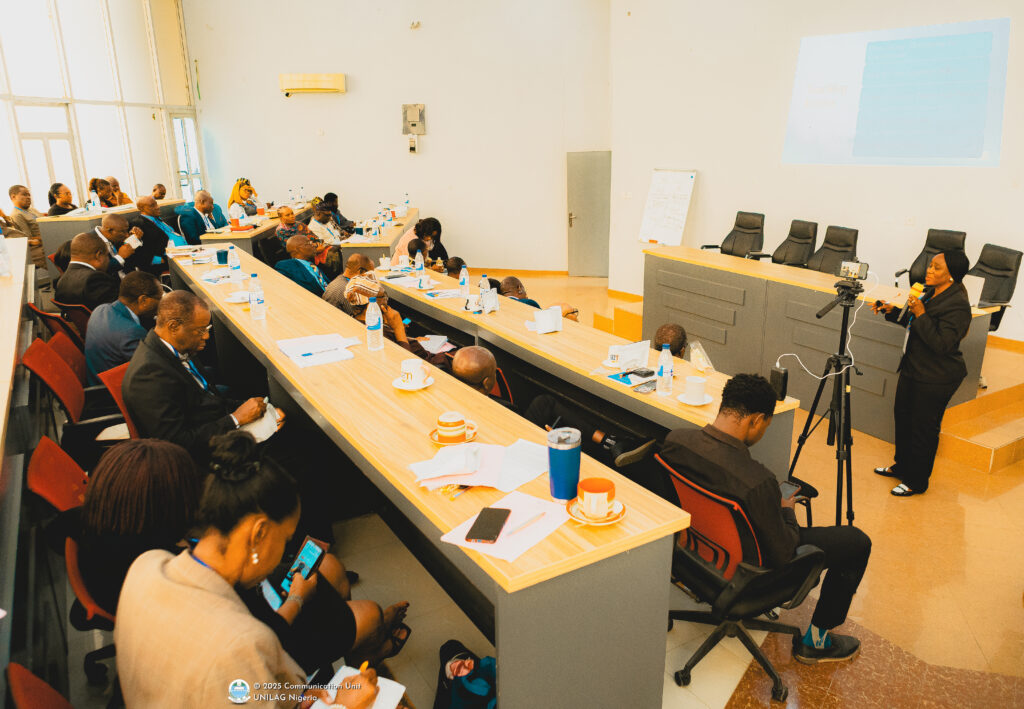
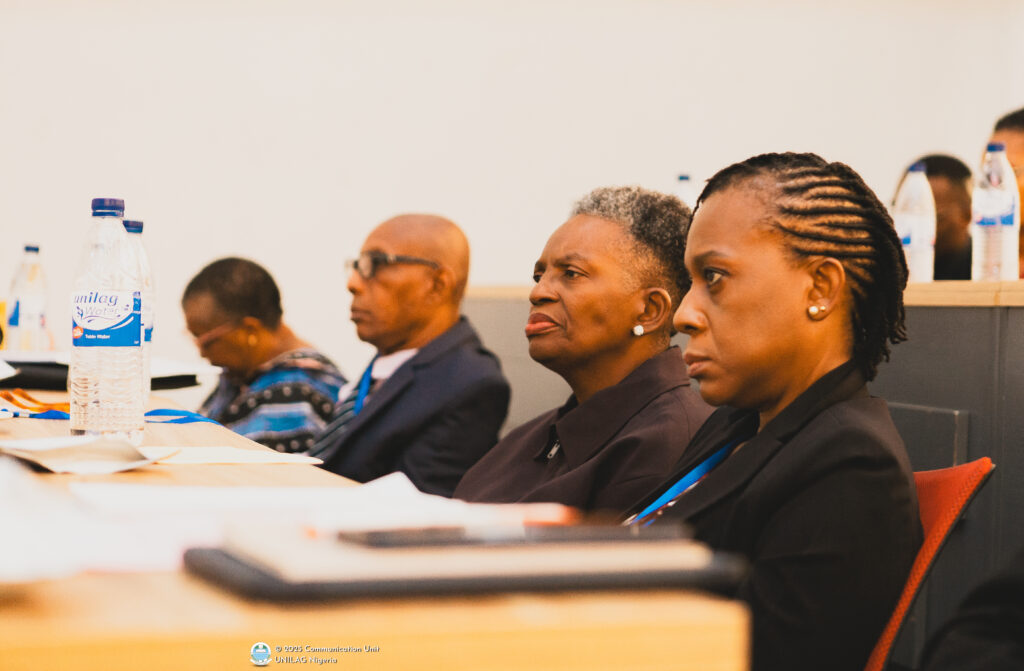
Wrapping Up
Closing the workshop, pioneer Executive Director of ULBS and Dean of the School of Postgraduate Studies (SPGS), Prof. Abraham Osinubi, encouraged participants to master the art of storytelling. He reminded facilitators that DBA theses should address national challenges, urging them to guide students with purpose and heart.
The workshop concluded with a photo session, capturing the spirit of collaboration, growth, and shared commitment to excellence. It not only equipped the facilitators with practical tools and insights but also reaffirmed ULBS’s dedication to shaping transformative leaders through rigorous, relevant, and responsible education.
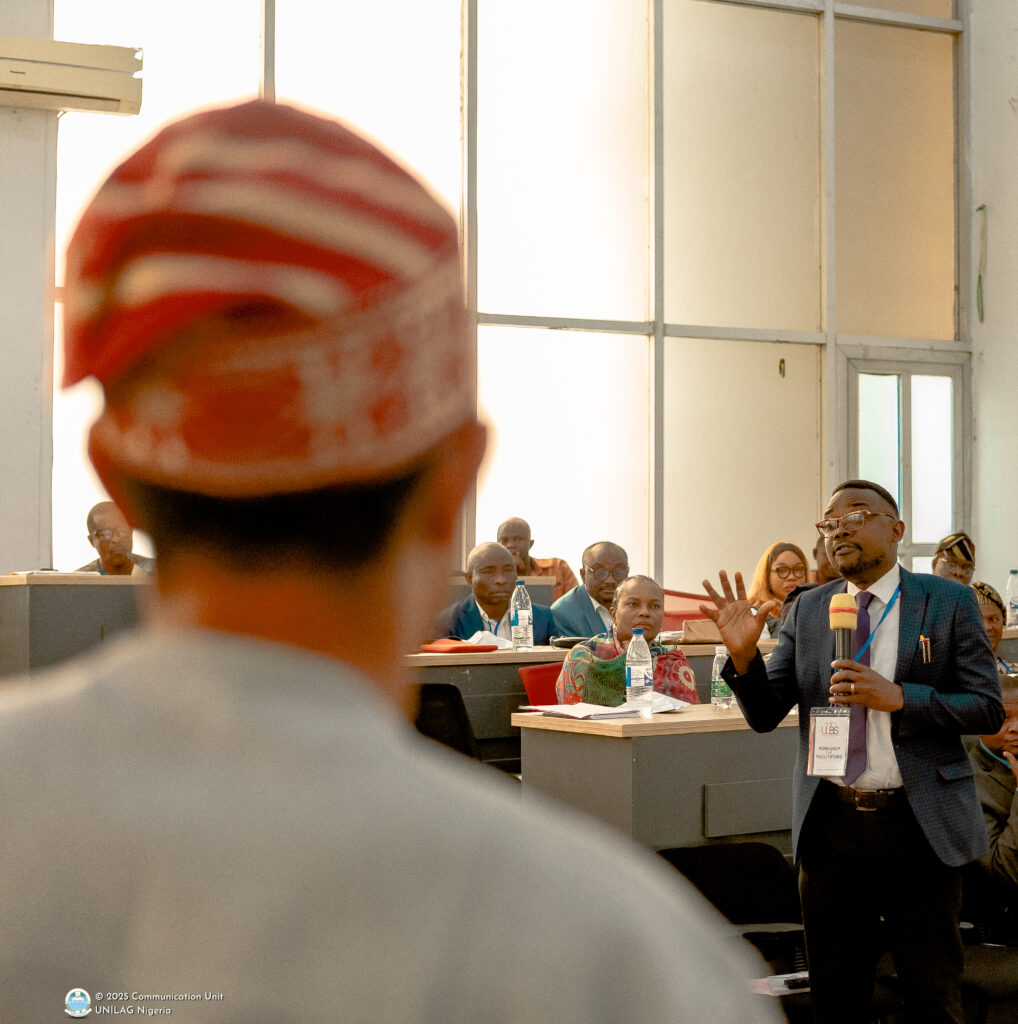
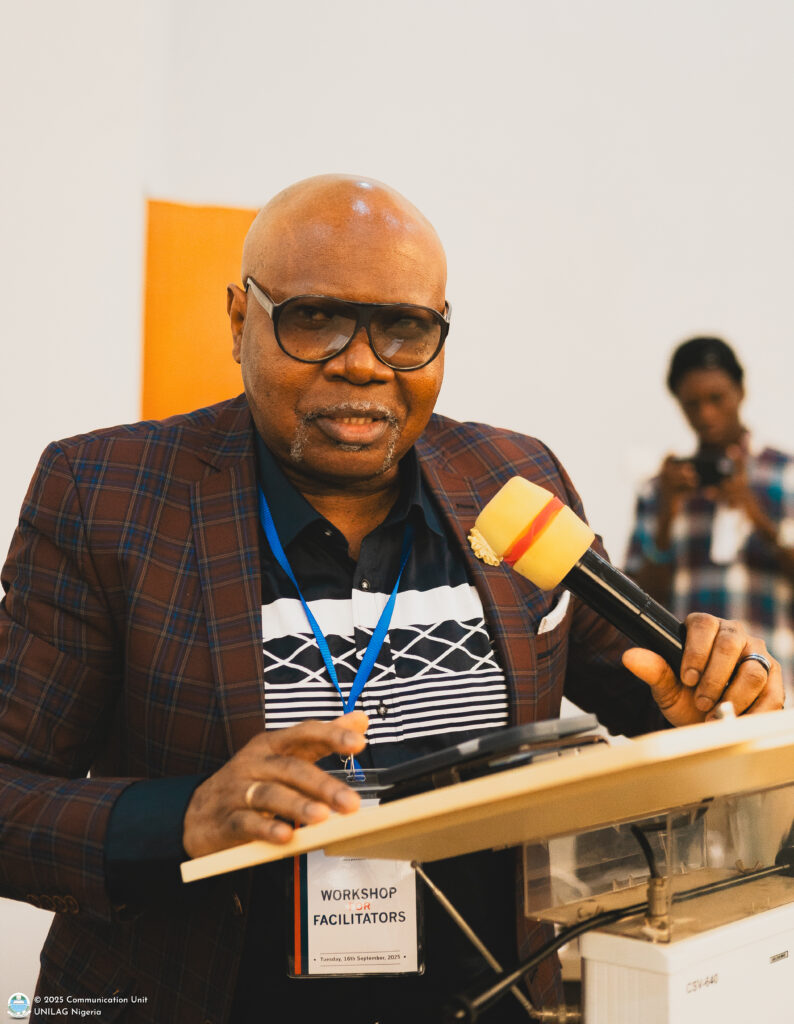
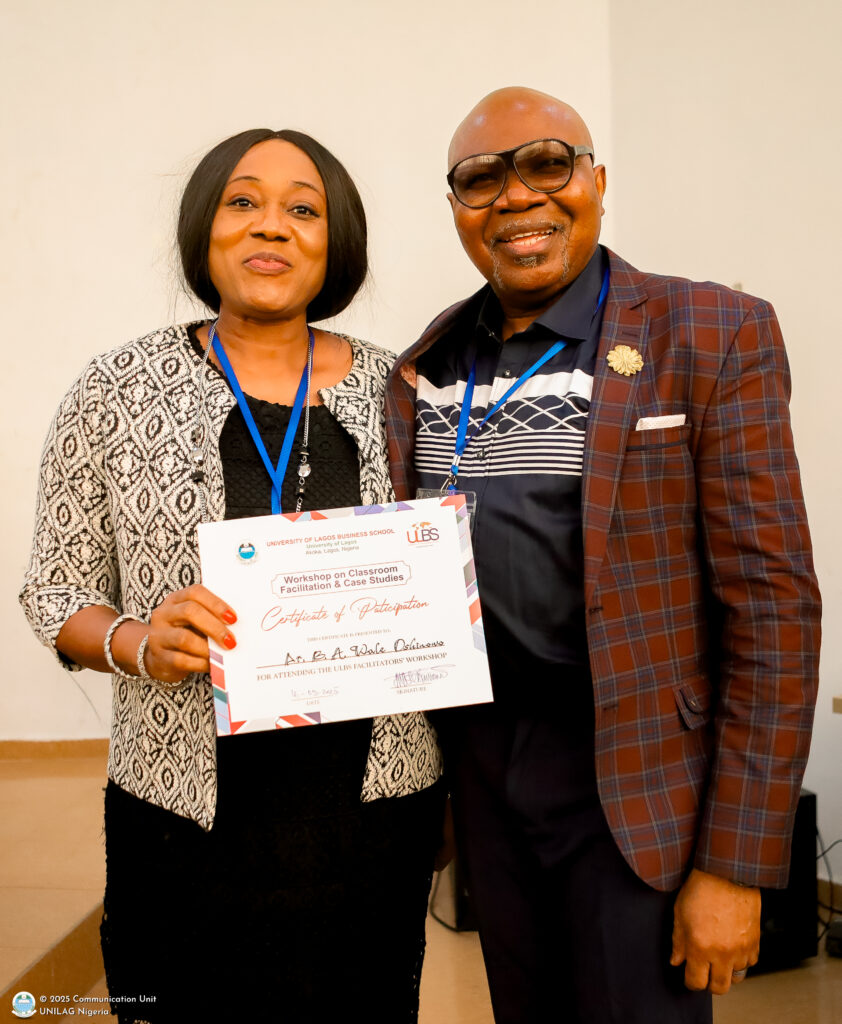
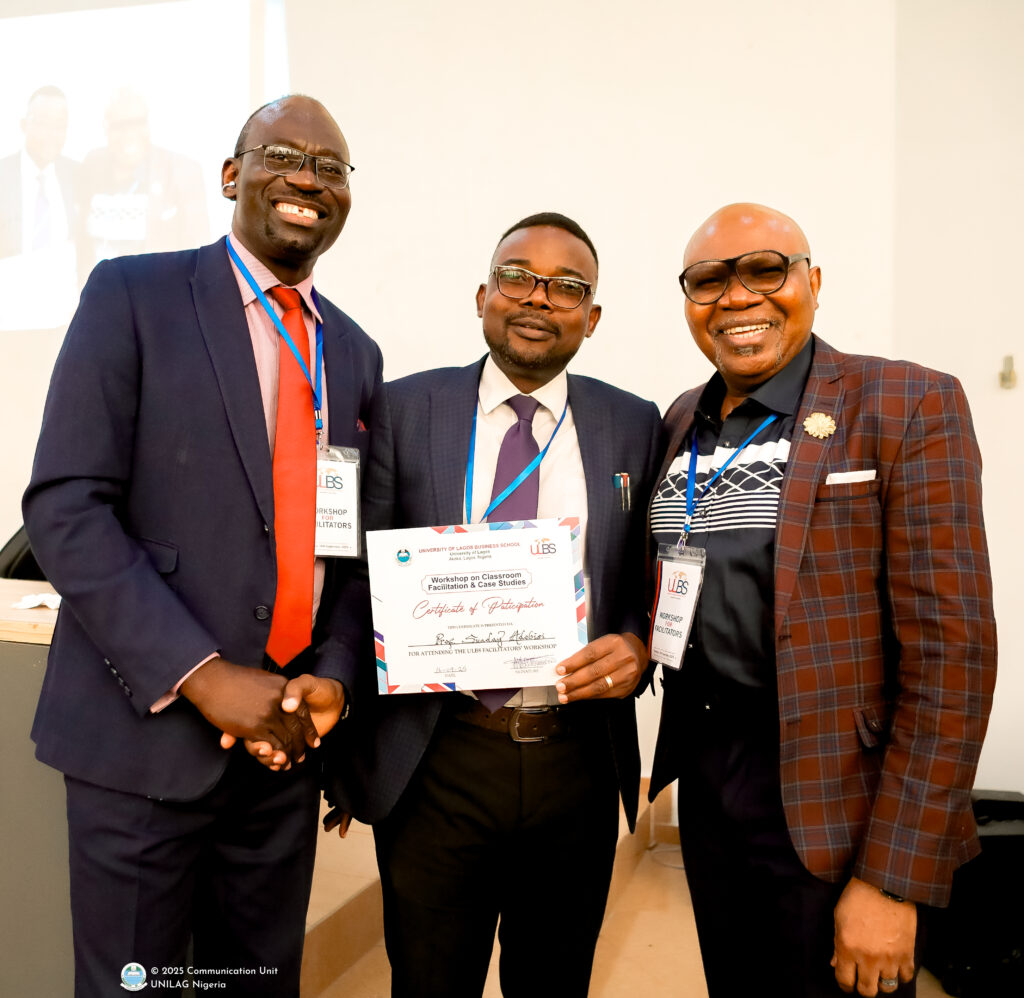
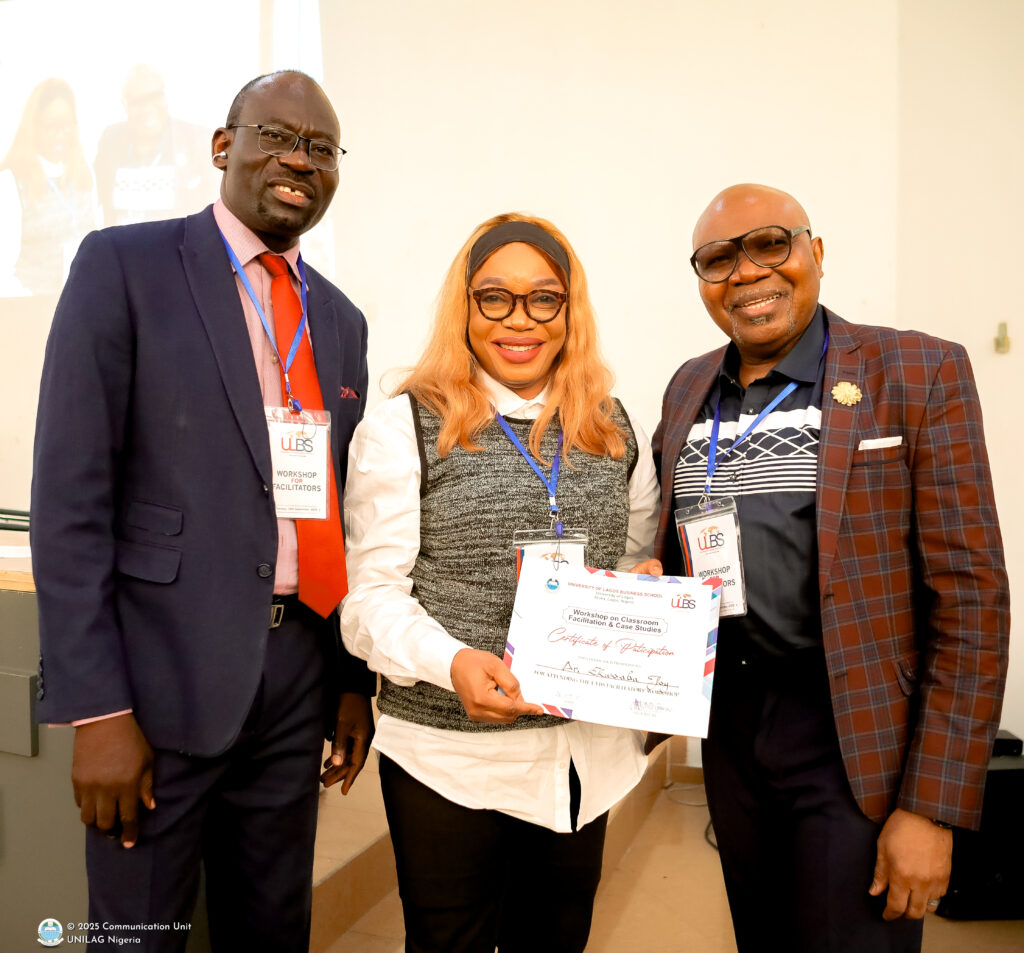
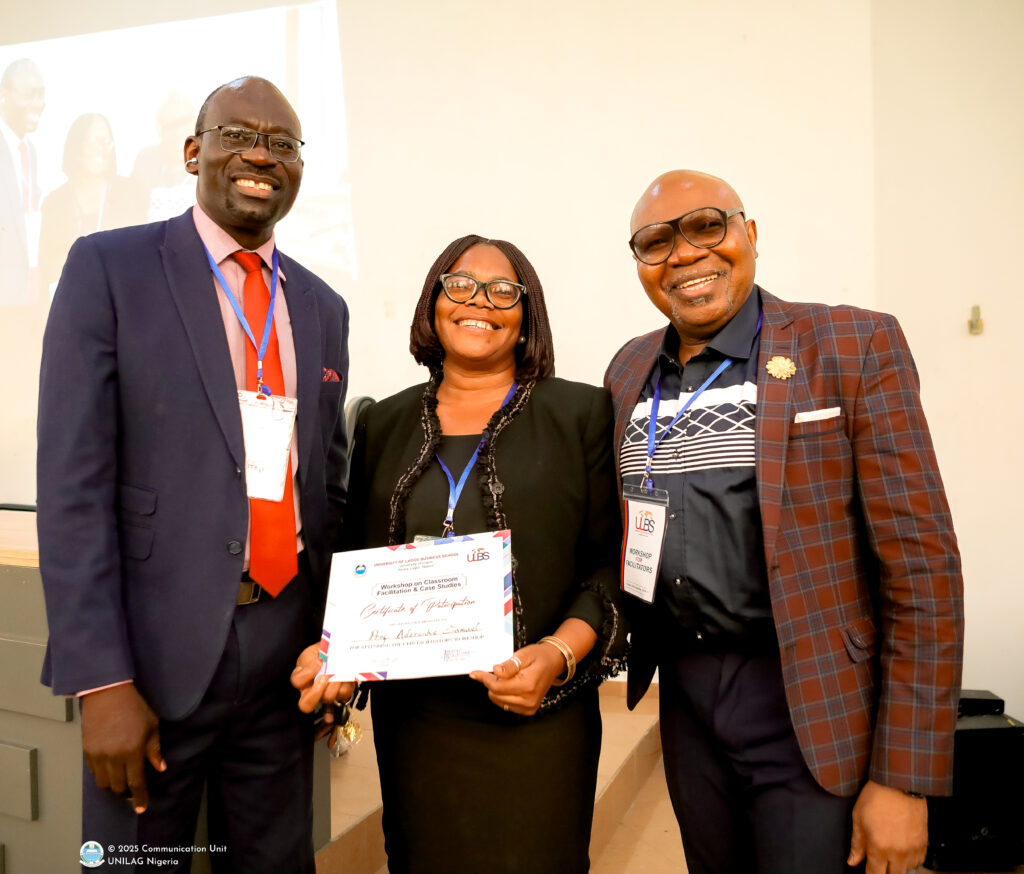
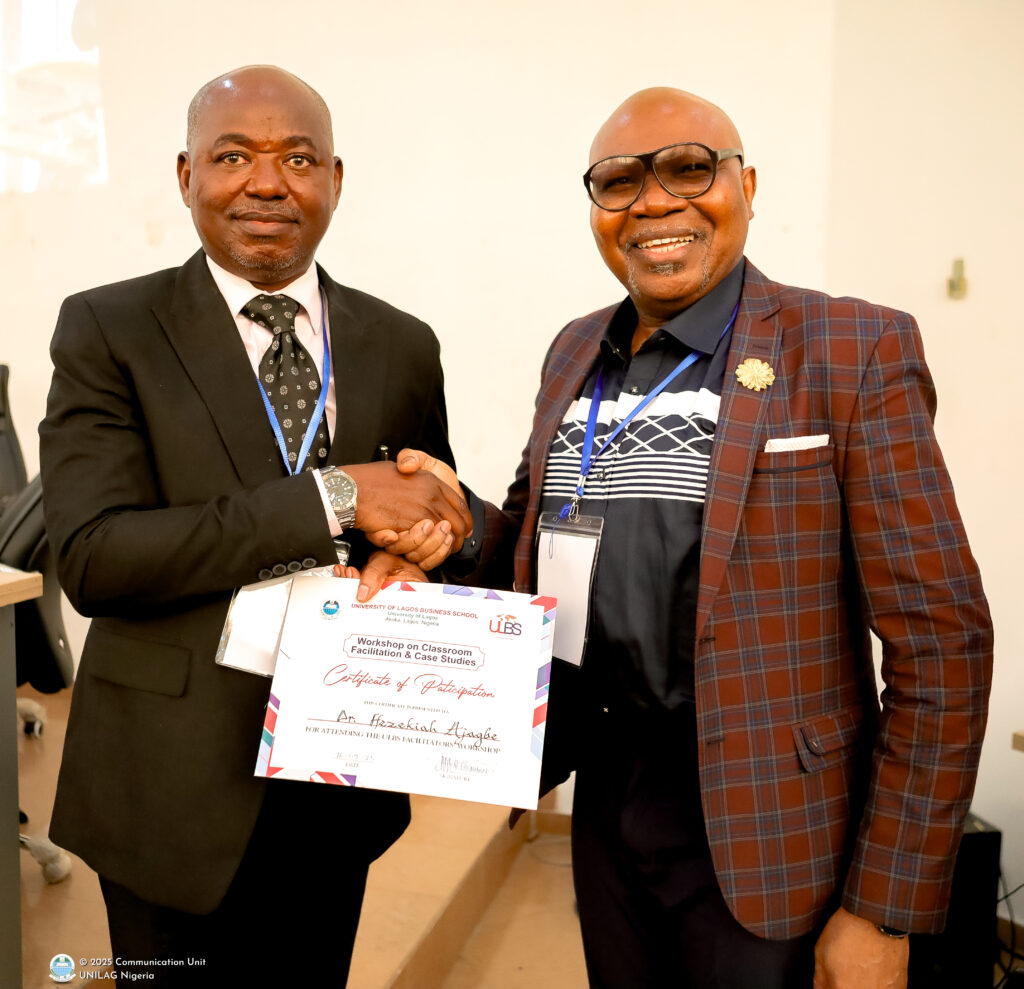
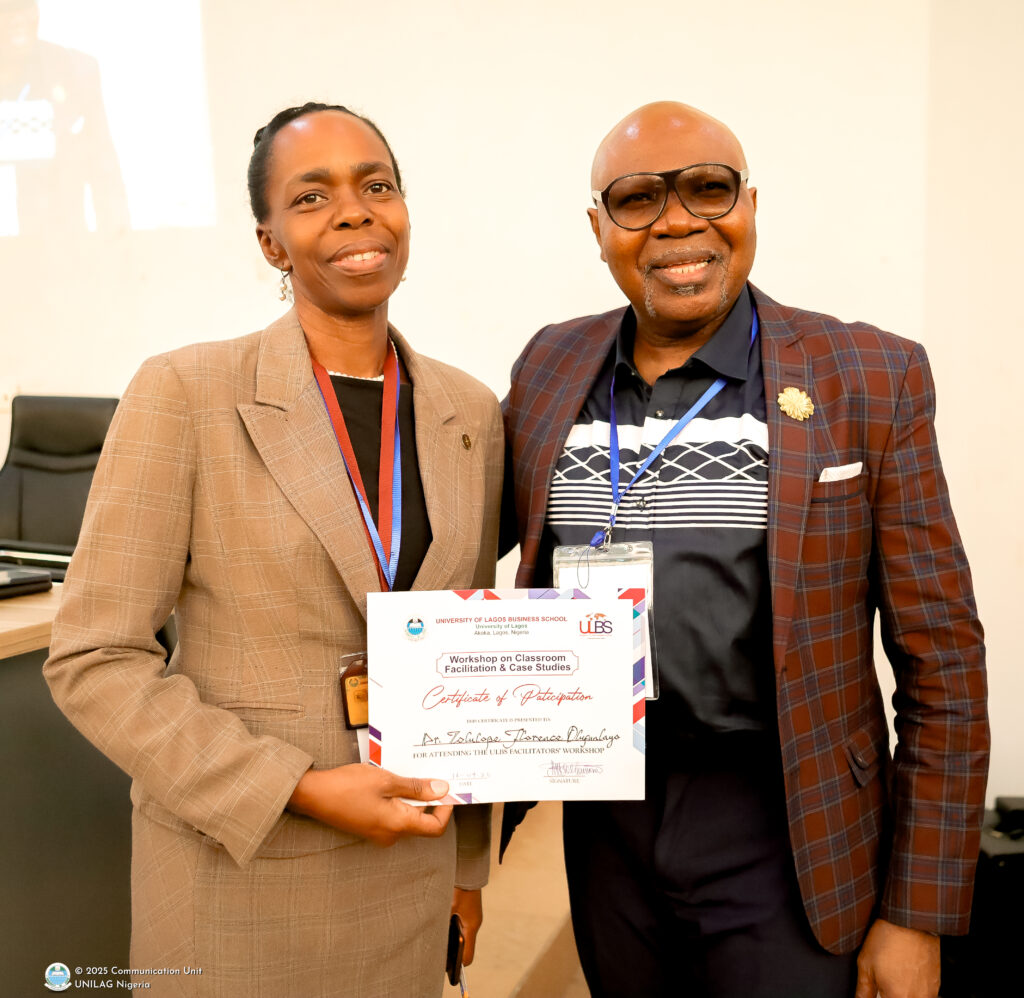
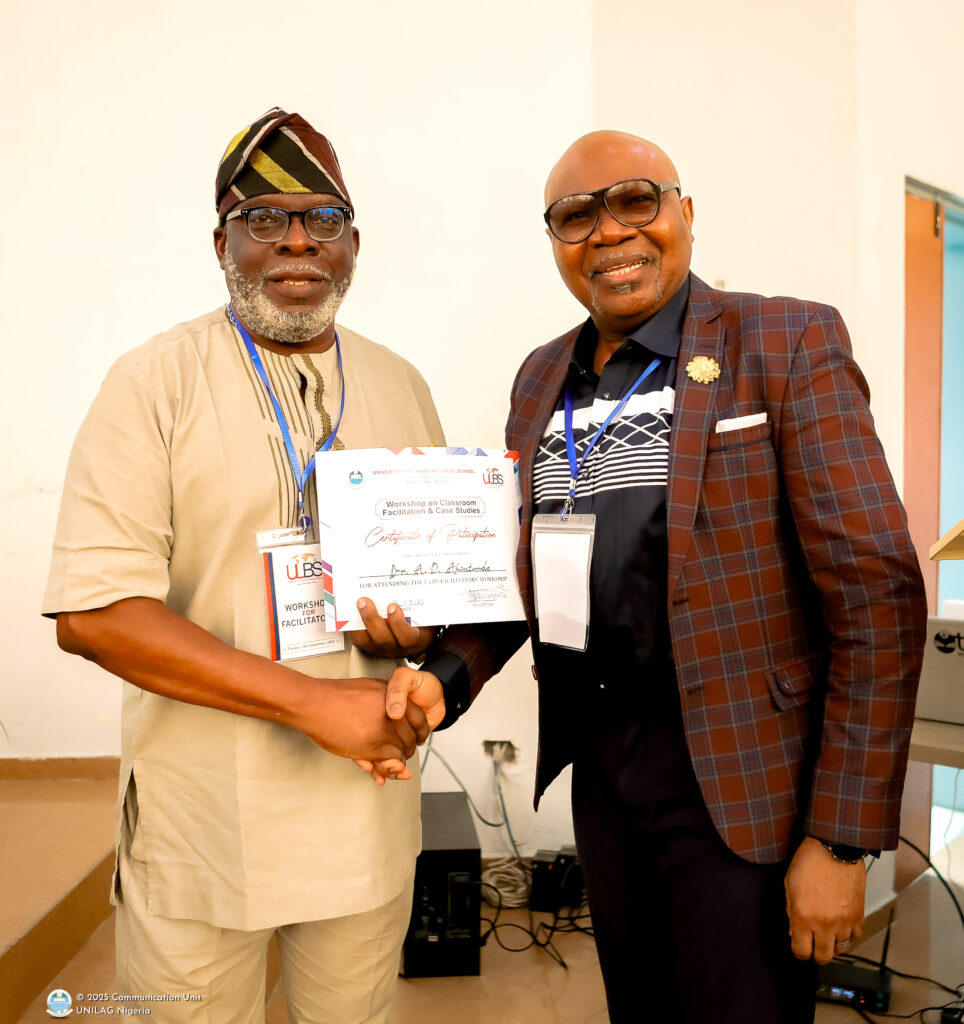
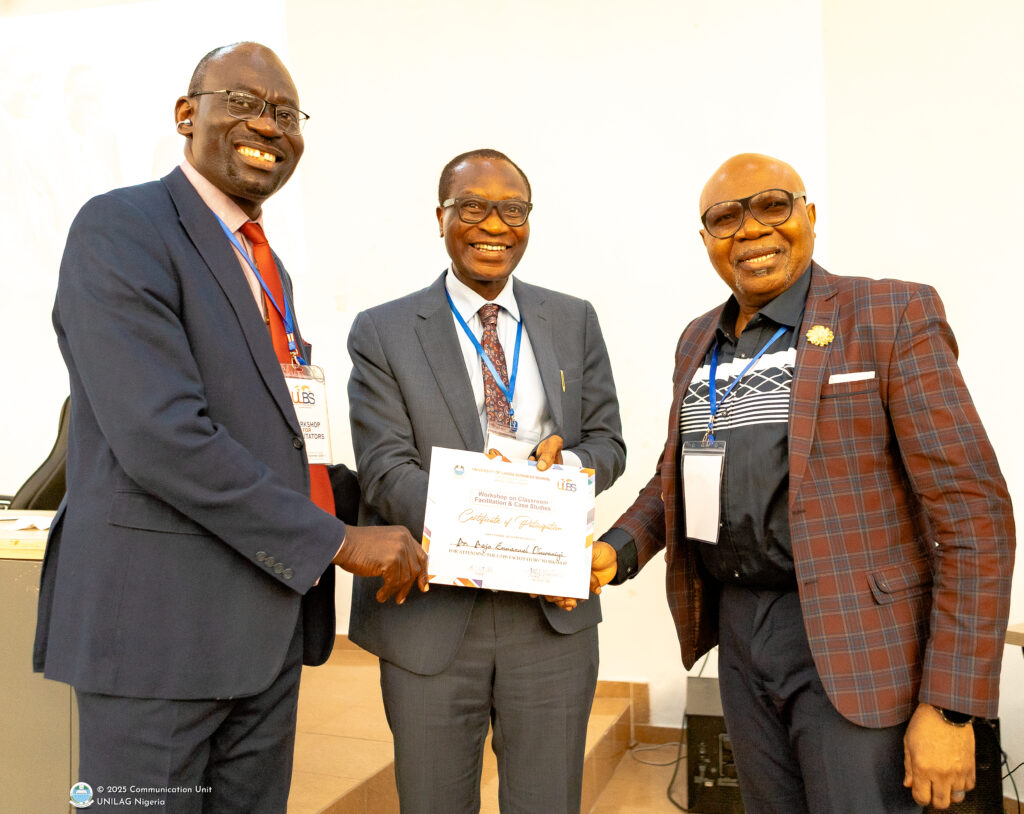
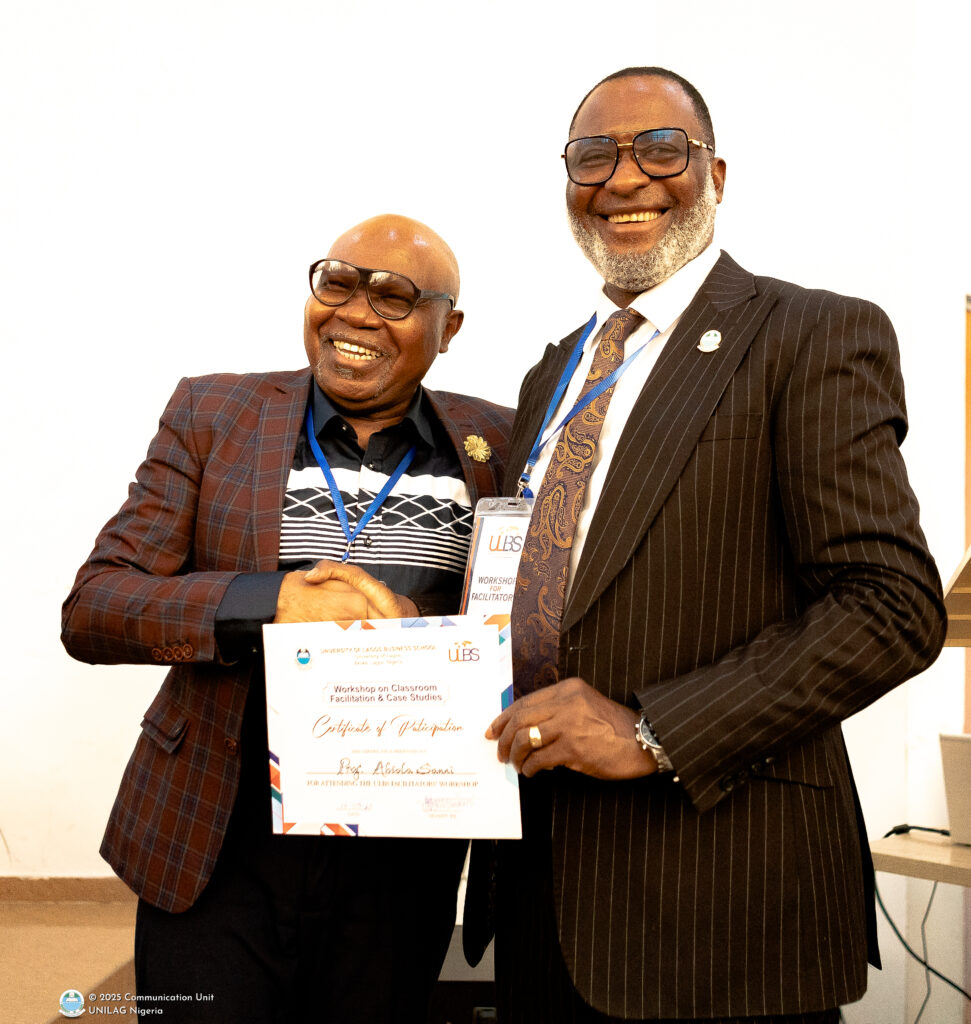
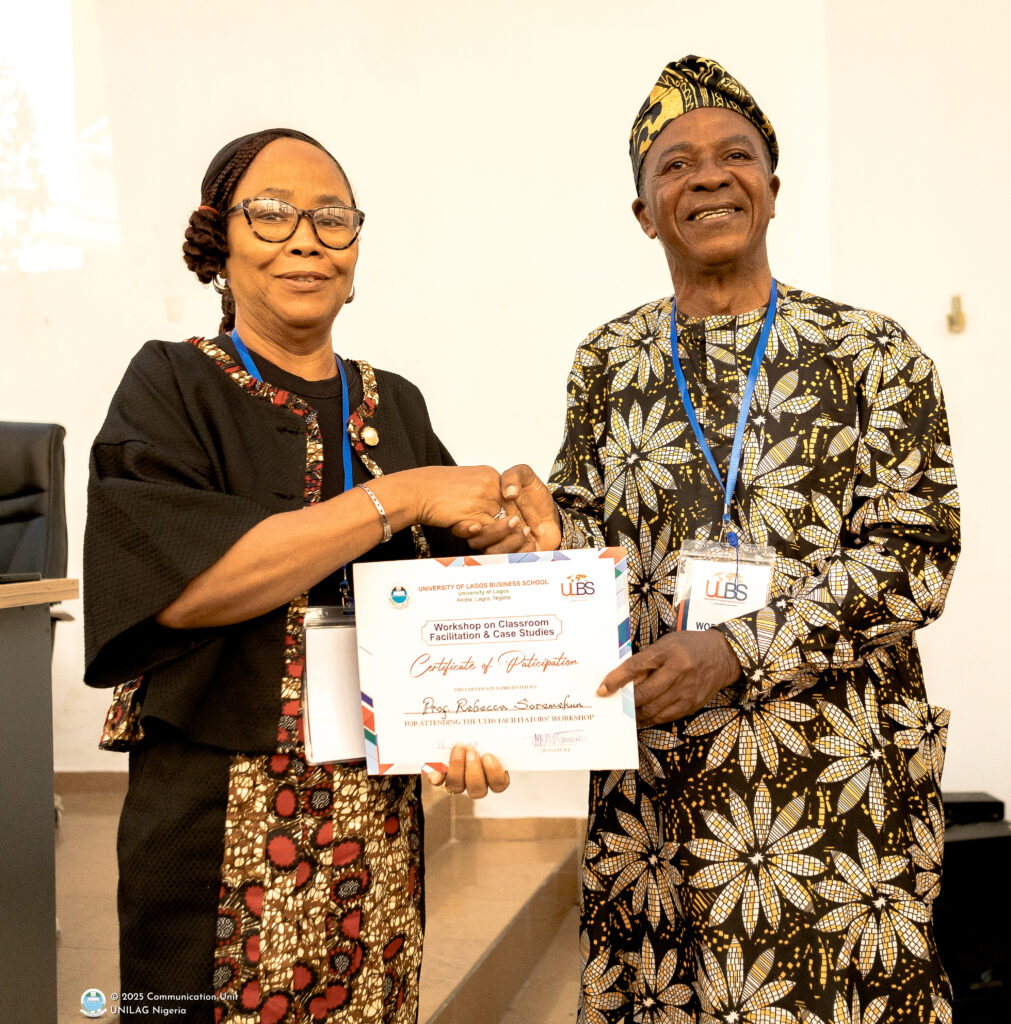
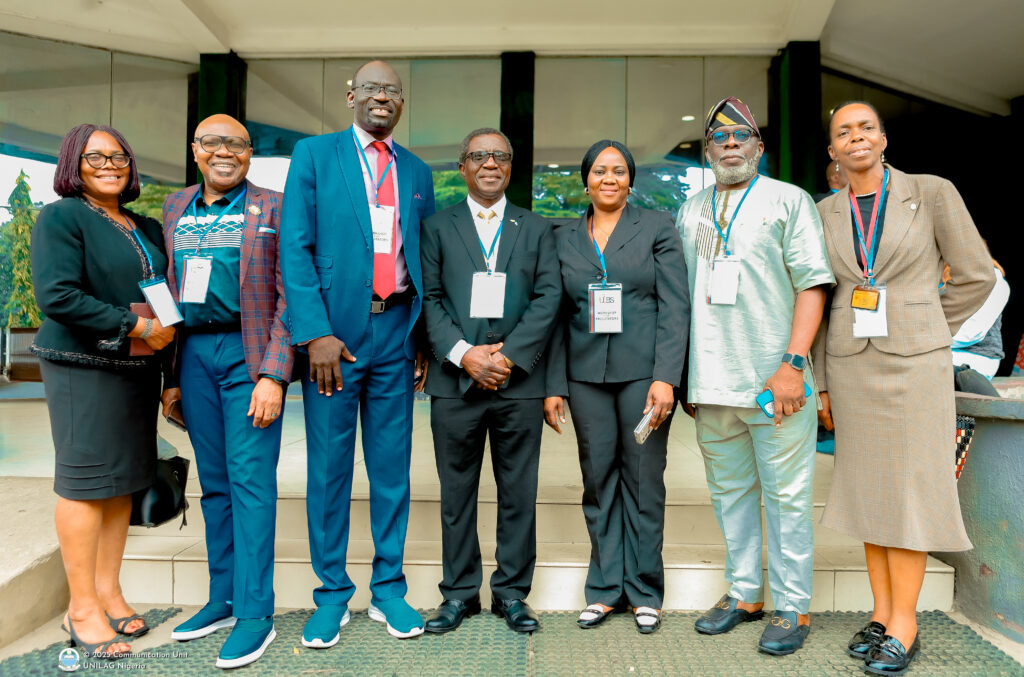
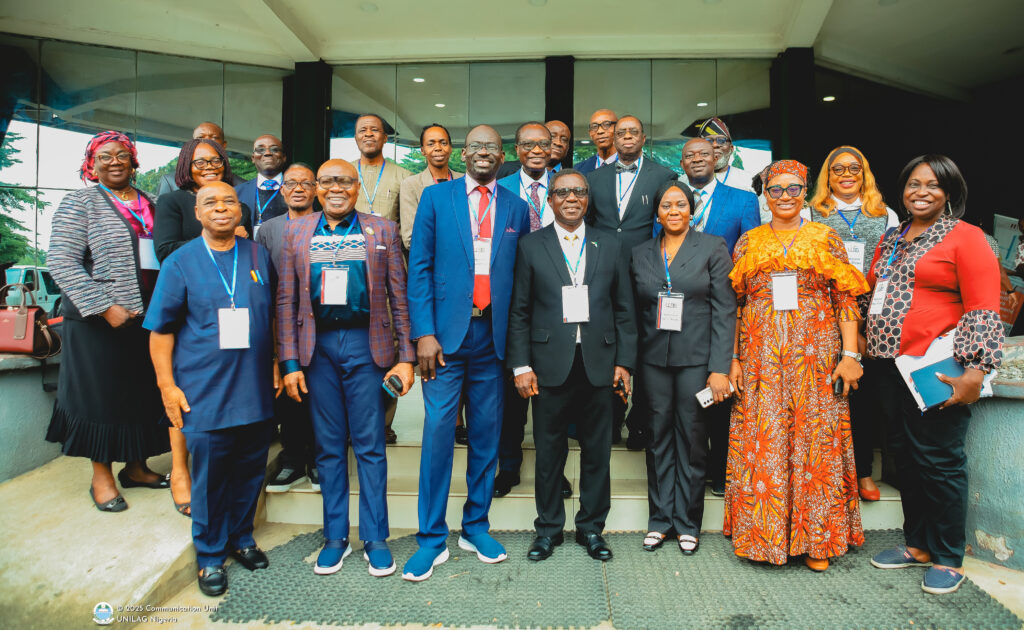
Author: Ndidi J. Odinikaeze
Editor: Adejoke Alaga-Ibraheem
Photographer: Ayo Oloyede

